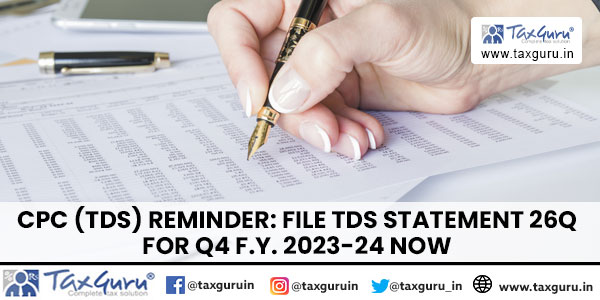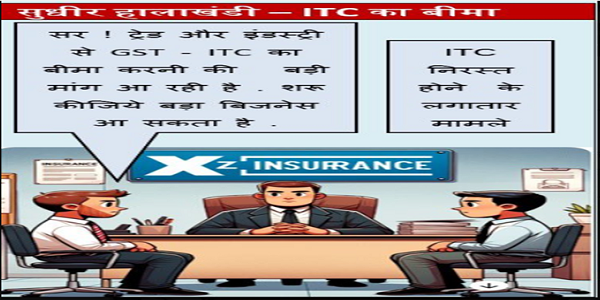HUF acts as an effective tax planning instrument. HUF stands for Hindu Undivided Family. HUF is considered as separate legal entity separate from its members. HUF is a family structure created for tax saving by pooling of assets/ investments.
Page Contents
Understanding of meaning of Karta, Coparceners and Members
The head of HUF is called Karta who manages the affairs of the HUF. He is usually the senior most male member of the HUF. In case of death of Karta, the eldest male member of the family becomes the Karta of the HUF.
Under Hindu law, any male or female born into a joint family within four levels of lineal descent from a common male ancestor is considered a coparcener. Anyone joining the family by means other than birth (e.g., by marriage) is treated as a member. However, an adopted person becomes a coparcener upon adoption, even though they are not born into the family. Since the 2005 amendment, a girl child also becomes a coparcener by birth and retains this status in her father’s HUF even after marriage, though she will only be a member of her husband’s HUF.
All family members, including the wife, children, their spouses, and their children, can be members of an HUF. Male members are called coparceners, while female members are called members.
Coparceners have the right to seek partition and can become the Karta (head) of the HUF. In contrast, members have the right to maintenance from the HUF’s funds and to receive their share at the time of partition, but they do not have the right to seek partition or to become the Karta.

Formation of HUF:
- HUF can be formed by Hindu, Sikhs, Jain, Buddhists. HUF should be formed by a family.
- HUF is created by executing HUF deed on stamp paper. After execution of deed, PAN is applied in the name of HUF. Thereafter bank account can be opened in the name of HUF.
- The assets of a Hindu Undivided Family (HUF) typically include common ancestral properties, gifts, proceeds from the sale of joint family property, property acquired through a will, and contributions made by HUF members to the common fund. This way the corpus can be created for HUF.
Incomes that can be earned by HUF:
Except salary all incomes can be earned by HUF. Such incomes may include:
- Rental Income from House Property
- Income from Business or Profession
- Capital Gains
- Income from Other Sources
Residential Status:
- Resident: A HUF would be resident in India if the control and management of its affairs is situated wholly or partially in India.
- Non-Resident: If the control and management is situated wholly outside India, it would become a non-resident.
- Resident and ordinarily resident/ Resident but not ordinarily resident:
If Karta of resident HUF satisfies both the following conditions, HUF will be called Resident and Ordinarily Resident.
- Karta of resident HUF should be resident in at least 2 previous years out of 10 years preceding the relevant previous year.
- The stay of Karta during 7 previous years immediately preceding the relevant previous year should be 730 days or more.
If it does not satisfy any of the conditions above, it will be treated Resident but not Ordinarily Resident.
Taxation Aspects of HUF:
HUF is taxed separately like Individuals as it has its own PAN and files an independent income tax return. Following tax benefits are available to HUF:
- HUF is taxed at the same rates as Individual. HUF enjoys the basic exemption limit as the Individuals do.
- There must be at least two coparceners to qualify as an HUF for taxation
- As a distinct entity under the Income Tax Act of 1961, a Hindu Undivided Family (HUF) can claim separate deductions. These include up to Rs 1.5 lakh under Section 80C, medical insurance premiums for family members under Section 80D up to Rs 25,000, and up to Rs 50,000 if any member is a senior citizen. Additionally, deductions under Section 80TTA are available up to Rs 10,000, and for senior citizens, the limit extends to Rs 50,000
- HUF can also claim exemption from capital gains u/s 54
- It can claim deductions under Section 24B for interest paid on a home loan.
- An HUF is permitted to engage in business activities. However, the funds utilized must belong to the HUF. Additionally, the HUF can give salary to its Karta and other family members involved in its business operations.
- Gifts upto Rs. 50000 received from non-relative are not taxable.
- HUF can also open DEMAT Account, make investments accordingly.
- According to Indian Income Tax laws, if you have more than one home that you live in yourself, only one is treated as your own residence, and you have to pay taxes on the others as it is treated as deemed to be let out. However, if you register as a Hindu Undivided Family (HUF), you can own multiple homes without paying taxes on them.
It is important to note that if a member transfers his self-acquired property to the HUF without proper sale consideration, income from such property is not taxable in the hands of the HUF. It will continue to be taxed in the hands of the member who makes transfer.
Partition of HUF:
There are two types of partition namely Total partition and Partial Partition. It is important to note that Income tax laws in India recognize only total partitions. This means that for tax purposes, a partial partition is not acknowledged by the income tax. Partition needs to be done through deed to be executed on stamp paper.
Conclusion:
Forming a Hindu Undivided Family (HUF) provides substantial tax benefits by offering separate tax exemptions and deductions similar to those available to individuals. This structure allows for income to be divided among family members, which can significantly reduce the overall tax liability, leading to considerable tax savings for the family.































No deed for formation of HUF .
For HUF also only one property can be self occupied. So multiple houses not possible
Thank you for your feedback.
For HUF, an affidavit is made by the Karta stating name, father’s name and address of all the coparceners on the date of application.
A HUF can own a residential house without paying any tax. But by Creating HUF, family can own more than one residential property without paying taxes
Beautifully Crafted Article. One points to add that practically HUF can not show income under section 194J i.e., income from profession. For more details you may connect with us at 96 54 27 69 86.
Thank you for your comment. Yes, professional fees can not be earned by HUF.